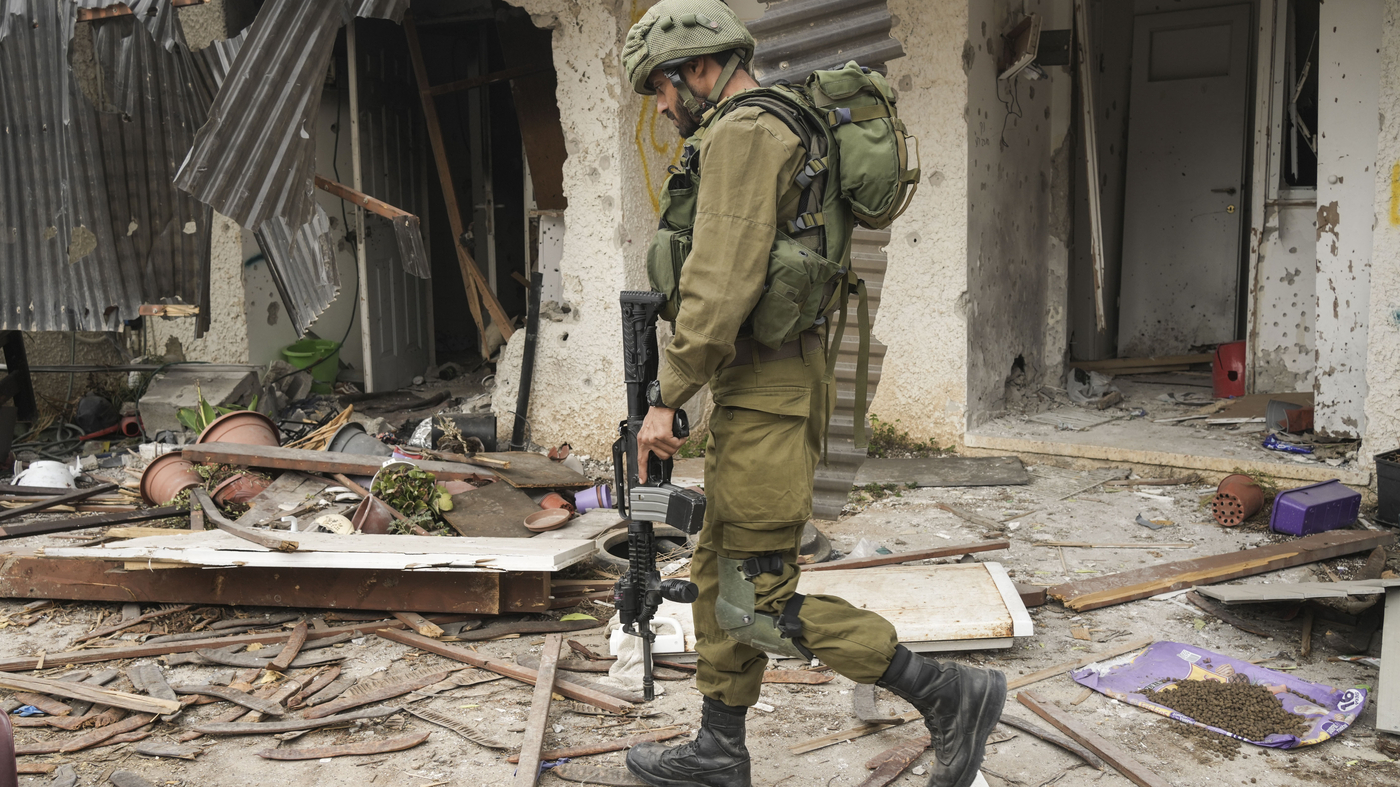
The destruction of Gaza’s internet is complete
The Gaza Crisis: What the U.S. Needs to Do to Prepare for an Invasion of the Gaza Strip, and Where Israel Will Embest
A heightened pace and intensity of operations could pave the way for the much-expected Israeli ground invasion of Gaza. A large-scale invasion would likely mark a significant and deadly turning point in a war that has already seen more than 1,400 dead in Israel and 7,300 dead in Gaza, according to respective officials.
Israeli tanks and troops have entered Gaza for brief incursions in the last couple of days, supported by heavy airstrikes and shelling.
Around sundown Friday, phone calls to and from Gaza had stopped. Paltel, a major Palestinian telecommunications company, announced that a barrage of airstrikes had cut key communications infrastructure.
The company said that the bombing in the last hour destroyed all the remaining international routes linking Gaza to the outside world.
Aid groups said they had lost touch with their teams in Gaza and decried the risk of civilians, health workers and other noncombatants.
It may mean courses of corrections like those made in Iraq and Afghanistan to protect civilians. The Israeli military is obligated by the laws of war to protect civilians in Gaza, but it’s also in their interest, he said.
The ability of the teams to provide emergency medical services is in jeopardy since the disruption affects the central emergency number ‘101’ and slows the arrival of ambulance vehicles to the wounded and injured.
In response to the blackout, Hamas accused Israel of an “intention to commit more massacres and genocides away from the eyes of the press and the world.”
“Part of the Biden administration’s approach has been to hug Israel quite tightly as a way of saying to Israelis, America is behind you, but also giving Israelis the willingness to trust the United States. And I think should military operations go into overdrive during a ground invasion, the United States could offer suggestions, could to push for course corrections that other countries simply would not be trusted [to give],” said Byman.
“Well, if you want to have any opportunity to try to leverage human intelligence to find out where the hostages are located, you certainly want to mitigate the pain and suffering on the civilian populace and, candidly I think Israel’s failed in that,” said Schwartz.
The U.S. may need to prepare bases in the region for any backlash, and even prepare its own response, as it did this week against Iranian forces in Syria.
“We’re also seeing an array of militant groups, many of which are tied to Iran, attacking not only Israeli but also U. S. forces. Military operations by Israel could excite these, whether it’s an operation that kills large numbers of civilians or simply something that changes the status quo,” said Byman.
“The bigger role would be to liaise with Israel to make sure that Israeli military operations are anticipated by the United States,” said Dan Byman, author of A High Price: The Triumphs and Failures of Israeli Counterterrorism.
American generals sent to Israel may be able to offer some lessons from their own struggle to mitigate civilian casualties after two decades of fighting in Iraq and Afghanistan. And the U.S. may have intelligence about specific technology that Hamas may have obtained from Iran – which spent years helping militants in Iraq build booby traps and mines to attack American troops.
A majority of the forces that have been activated haven’t served in Lebanon or in Gaza before. And as they’re putting their lives at risk, trying to deal with urban room clearing. The young men and women have to make decisions based on who they are in a room with and who they perceive to be a threat.
The Special Operations Command of the U.S. and Israeli Special Operations forces have been close for a long time. It’s very strong according to Mark Schwartz, a retired Marine Gen who served as the U.S. Security Coordination Officer for Israel and the Palestinian Authority.
Around the world, the internet and telecoms networks that typically give web users access to international video calls, online banking, and endless social media are a complicated, sprawling mix of hardware and software. Data is sent between the data centers and the server and the switches and reams of cables. Local internet access is provided by a mix of companies with no clear public documentation of their infrastructure, making it difficult to monitor the overall status of the system as a whole. In Gaza, experts say, internet availability is dependent on Israeli infrastructure.
“This is a terrifying development,” Marwa Fatafta, a policy manager focussing on the Middle East and North Africa at the digital rights group Access Now, tells WIRED. A bombardment campaign takes Gaza completely off the grid, it means something is about to happen.

